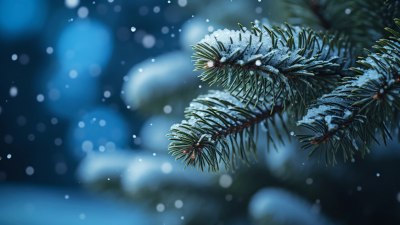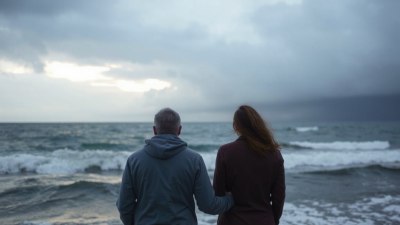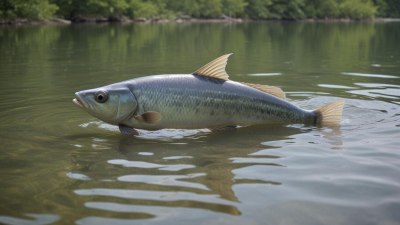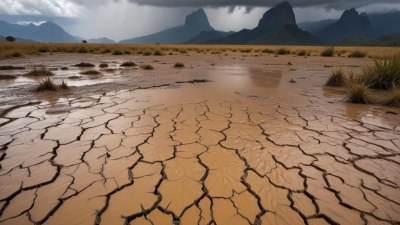Can We Hear Snowflakes Fall The Secret Sounds of Snow
Explore the fascinating sounds of snowflakes falling, their unique qualities, and the magic of winter silence.

When winter blankets the Earth in white, the landscape transforms into a serene and picturesque scene. The soft, fluffy snowflakes that swirl through the air create not just visual beauty but also contribute to an intricate soundscape that often goes unnoticed. Many people ponder whether they can actually hear snowflakes fall, or if the sounds associated with snowfall are merely an illusion. In this article, we will delve into the science behind the sounds of snow, the experience of listening to snowfall, and the fascinating phenomena that accompany this serene winter wonder.
The Nature of Snowflakes
Before we can explore the sounds of snowflakes, it's essential to understand what they are. Snowflakes are formed when water vapor in the atmosphere freezes into ice crystals. These crystals come together to create the unique and intricate shapes that we commonly associate with snow. Each snowflake is distinct, and their structures are determined by the atmospheric conditions in which they form, including temperature and humidity levels.
Snowflakes can vary significantly in size, shape, and weight, leading to differences in their acoustic properties. Larger, denser snowflakes may produce a more pronounced sound upon landing, while smaller, drier snowflakes might create minimal or no sound at all. Despite this, all snowflakes share a characteristic: they fall gently to the ground, creating a soft, muffled sound that can barely be perceived.
The Sound of Silence
One of the most captivating aspects of snowfall is the profound silence that often accompanies it. When a snowfall occurs, the soundscape of the environment changes dramatically. Snow absorbs sound by its very nature; the fluffy texture of snowflakes allows them to trap sound waves, preventing them from bouncing back into the environment. This acoustic property can make a snowfall feel eerily quiet, as if the world has been wrapped in a thick, sound-absorbing blanket.
This phenomenon is enhanced by the fact that many activities naturally diminish during heavy snowfall. Fewer cars populate the streets, and fewer people venture outdoors. The stillness of the environment compounds the quiet, making the experience of winter feel even more serene. In this way, snowfall can create moments of profound calmness, allowing us to reflect on the beauty surrounding us.
Can We Hear Snowfall?
The question remains, can we hear snowflakes as they fall? The answer is nuanced. When snowflakes fall to the ground, they often make soft sounds—crunches, whispers, and flutters. However, these are barely perceptible to the unaided ear. The slightest shift from their soft descent can create noises reminiscent of fabric brushing against itself, or the subtle crackle of ice. This is more apparent when snowflakes settle on various surfaces—grass, branches, or rooftops—where their impact can be more audible.
Additionally, the sound of snowflakes landing on surfaces can be influenced by factors such as the density of the snow and the temperature. For instance, when temperatures are around freezing, the snowflakes may be wetter and heavier, making a more noticeable sound upon impact. Conversely, drier snowflakes tend to produce less noise. Moreover, sounds can be amplified by wind or nearby objects, which can create an illusion of louder snowfalls.
The Acoustic Experience of Snow
Listening to snowfall is not just about hearing the snowflakes themselves but also about embracing the entire sensory experience. As you step outside during a light snowfall, you may hear the crunch of snow beneath your feet as you walk. The collective sounds of snowflakes landing, coupled with the subtle rustling of trees and the light whisper of wind, culminate in a unique winter symphony.
This distinct soundscape can evoke emotions and memories tied to colder seasons. People often describe how the softness and tranquility of snowfall can transport them to a place of peace or nostalgia. This intrinsic connection between sound and memory is what makes the experience of listening to snowfall particularly profound.
Recording the Sounds of Snow
In recent years, sound artists and researchers have become interested in documenting and analyzing the sounds of snowfall. Using advanced recording equipment, they capture the delicate auditory details that occur during a snowstorm. The process demands precision and preparation, as recording snow requires special microphones and conditions. The results are often mesmerizing, revealing a hidden world of whispers and crackles that often go unnoticed by the naked ear.
These recordings serve many purposes: they can be used for scientific analysis of snow and its impact on environments, incorporated into sound designs for films or meditation tracks, or simply enjoyed as a form of audio art. The ethereal sounds captured in these recordings may allow listeners to immerse themselves in the experience of snow without being physically present in a winter wonderland.
The Psychological Benefits of Listening to Snow
As winter settles in, many individuals find solace and comfort in the quiet sounds of snow. There are psychological benefits associated with listening attentively to snowflakes fall. Research suggests that nature sounds can reduce stress, improve mood, and enhance cognitive functioning. The muffled sounds of snowfall provide a soothing backdrop that promotes relaxation and mindfulness.
Moreover, the association of snow sounds with cozy moments, such as sitting indoors with warm beverages while watching snowflakes fall, can enhance feelings of happiness and contentment. Engaging with winter sounds encourages us to slow down, disconnect from the fast pace of daily life, and appreciate the beauty in stillness.
The Snowy Soundscape Across the World
The experience of snowfall and its accompanying sounds can differ around the world. In some regions, heavy, wet snow produces a distinctly different sound than the icy, powdery snow found in colder climates. Cultural perceptions of snowfall also influence the auditory experience, with some societies celebrating the sound of snowfall in their music, poetry, and stories.
For example, in places where snowfall is rare, the mere experience of hearing snowflakes fall can be exhilarating. Conversely, in regions accustomed to heavy snowfall, residents may have a unique familiarity with these sounds, incorporating them into their daily lives. The cultural fabric surrounding winter and snow can add another layer to the auditory experience, giving it meaning beyond the scientific aspects.
As we continue to explore the secret sounds of snow, it becomes clear that the auditory experience of snowfall is rich and multifaceted. While the sounds of individual snowflakes may be challenging to perceive, the larger soundscape crafted during a snowfall creates an immersive sensory experience that invites reflection and calmness. Whether you choose to step outdoors and listen to the falling snow or listen to recorded sounds, embracing the magic of winter will undoubtedly bring a touch of peace to your day. In a world often full of noise, the whispers of falling snowflakes remind us to slow down and appreciate the serene beauty of nature.











